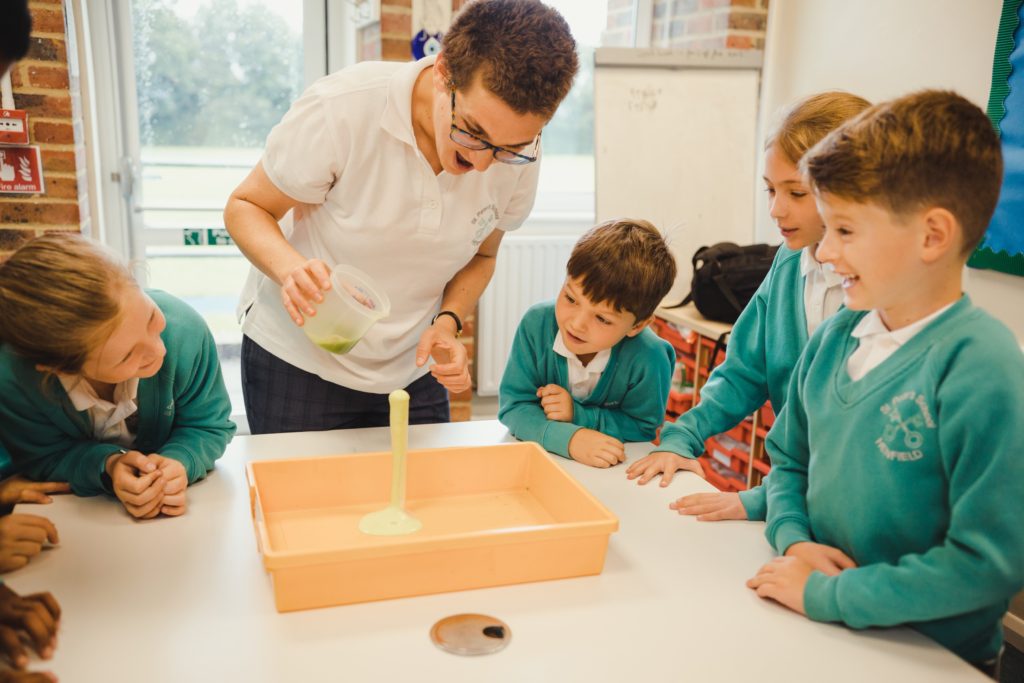
Science
At St Peter’s we just love science – children and teachers alike. It’s a really important part of our learning because we get to be really curious and ask great questions. We answer those questions in lots of different ways.

Sometimes we observe changes over time – like watching a plant grow, or observing a tree change as the seasons change. Sometimes we sort and classify, for example sorting materials into magnetic and non-magnetic. Sometimes we do research using books and the internet to answer our questions – especially helpful when we are studying space in year 5. Sometimes we use comparative or fair tests, which are useful if you want to test how good different materials are as ear protectors, or if you want to know how different surfaces affect a car travelling down a ramp. Sometimes we can’t do a fair test, so we look for patterns instead. This would be useful if we wanted to know which areas of the school grounds had more woodlice, or whether children with longer legs can run faster.
So, as you can see, we like to have a go at lots of enquiry work. This helps us to develop our skills as scientists: asking questions, planning enquiries, predicting what will happen, observing carefully, taking measurements, recording results, making conclusions and reporting on results. We keep practicing these skills so we can become great scientists.
In lessons, we learn about plants, animals (including humans), materials, light, forces and magnets, sound, electricity, Earth and space and even evolution. We often get to revisit topics as we get older to deepen our knowledge of it. Our teachers work hard to help us remember facts from previous years.
We also learn about great scientists from the past and what modern scientists are now doing. This helps us to understand the process of science and to see ourselves as the scientists of the future!
At Home
Parents and carers, you can help your child to make progress in science by:
- Spending time in nature together observing plants and animals
- Encouraging them to ask questions about the world – this can be as simple as “why does an apple go brown?”
- Trying to find out answers together, perhaps by doing a simple test like putting lemon juice on a cut apple and seeing what happens
- Talking to them about how you use science in your life / career e.g. gardening, cooking, DIY. Everyone uses science in some way!
- Borrowing non-fiction books from the library and reading them together
- Keeping a look out for free science activities that you can attend as a family


Dr Lerner is our Science Leader and she brings a wealth of expertise to the role.
Prior to becoming a primary school teacher, Dr Lerner studied physics at Oxford University and then went on to complete a PhD in theoretical cosmology, studying the origin of the Universe. She then worked as a postdoctoral researcher at the University of Helsinki (Finland) and DESY (a research institute in Hamburg, Germany).
Dr Lerner is also she is also the South East Regional Representative for the Odgen Trust.
You can read about the Being a Scientist project she lead at St. Peter’s here.
Our Science Policy can be viewed by clicking here
Our Science Skills Progression document can be view by clicking here



